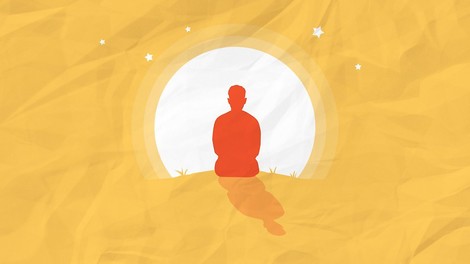Your podcast discovery platform
Curious minds select the most fascinating podcasts from around the world. Discover hand-piqd audio recommendations on your favorite topics.

piqer for: Global finds Health and Sanity Doing Good
Bangalore-based Rashmi Vasudeva's journalism has appeared in many Indian and international publications over the past decade. A features writer with over nine years of experience heading a health and fitness supplement in a mainstream Indian newspaper, her niche areas include health, wellness, fitness, food, nutrition and Indian classical Arts.
Her articles have appeared in various publications including Mint-Wall Street Journal, The Hindu, Deccan Herald (mainstream South Indian newspaper), Smart Life (Health magazine from the Malayala Manorama Group of publications), YourStory (India's media technology platform for entrepreneurs), Avantika (a noir arts and theatre magazine), ZDF (a German public broadcasting company) and others.
In 2006, she was awarded the British Print-Chevening scholarship to pursue a short-term course in new-age journalism at the University of Westminster, U.K. With a double Masters in Globalisation and Media Studies from Aarhus Universitet (Denmark), University of Amsterdam and Swansea University in Wales, U.K., she has also dabbled in academics, travel writing and socio-cultural studies. Mother to a frisky toddler, she hums 'wheels on the bus' while working and keeps a beady eye on the aforementioned toddler's antics.
Podcast: What Did The World's Biggest Loneliness Experiment Find? (You Would Be Surprised)
They are calling it the 'world's biggest loneliness experiment' and not without reason. Initiated by the BBC’s Claudia Hammond, as many as 55,000 people from 237 different countries, islands and territories took part in the study conducted by a consortium of British universities. It only confirms what researchers the world over already suspected—this is the age of loneliness as much as it is the age of social media.
In this podcast, Claudia discusses in detail the results of the survey, while meeting up with people (in their homes) who talk to her about why they feel lonely, when they felt the loneliest and what they do about it. These interactions bring to poignant life what the survey declares clinically. (It is arguably more interesting to listen directly to people talking about their loneliness than read about their experiences). Curiously, while listening to the podcast, one experiences a sense of camaraderie – the feeling that all of us have been to that dark place sometime or the other. Something that made me personally feel less lonely instantly.
The findings are fascinating, to say the least, and more often than not, counter-intuitive. Here's the most important one: Perhaps contradicting popular perception, the levels of loneliness were highest among 16 to 24-year-olds with 40 per cent of them saying they often feel lonely. As Claudia says it is not necessarily modern life that is making youngsters feel lonely, but all the other factors associated with being young—this being a time of transition, moving away from family and friends, not having had the chance to learn coping strategies, starting new jobs, etc. When people were asked at what point in their life they had felt lonely, the most common answer was when they were young, even in retrospective.
The survey also found that around 40 per cent of people think loneliness can be positive.
Additionally, there is a compelling section about the history of solitude and how our perception of loneliness has changed over the years.
